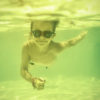Worrying about microbes in the water is an unfortunate job of every pool owner. Swimming with microbial guests that don’t include family and friends is not a goal that you should strive for. Pool Troopers can help you learn more about what is in your water and then make smart choices in family fun and pool care.
Common Visitors to Your Pool
A microbe is defined as “a microorganism, especially a bacterium causing disease or fermentation.” According to inspectors, the basic pathogenic microbes found in swimming pool water are:
• Viruses
• Bacteria
• Protozoa
The germs from others using the pool can contaminate it and cause diseases such as diarrhea and infections of the skin, ear, and upper respiratory areas. These are especially prevalent when a swimmer’s head is submerged. Mucus, blood, saliva, and skin from infected swimmers can contaminate pool water and cause problems for others.
Most pool microbes can be killed with disinfectants in less than an hour, however, it is smart to know about others that might have a longer survival rate.
Viruses
Viruses in your pool water could include noroviruses as well as Hepatitis A.
Bacteria
Bacterial microbes that might be found in a pool include E-coli, Shigella (which is the cause of dysentery), salmonella, and Campylobacter. Most of the bacteria are quickly killed by a chlorine disinfectant.
Protozoa
Included in this class of microbes is cryptosporidium, often the cause of diarrhea. This pathogen can survive for up to ten days, even in chlorinated pool water. Giardia is another protozoan that can cause gastrointestinal problems should you come into contact with it.
Smart Precautions
A pool might have circulation problems that may allow certain microbes to survive even in chlorinated swimming pools. Therefore, it is wise to take some precautions that can keep your family safer and prevent the spread of germs. These tips include:
• Do not swallow water
• Don’t swim in water that is dull, cloudy, or green or that has an odor.
• Swim safe water should be blue, clear and odorless
• Shower before and after swimming
• Wash hands with soap and water
• Take young children from pool for bathroom breaks often
• Change diapers only in the bathroom
• Wash children with soap and water before they enter the pool
• Don’t allow family members to swim if they have diarrhea
Children often spit water into the pool after taking it in their mouth. This is a problem, as some of it can be swallowed. Ensuring that hands are properly washed with soap and water before and after a swimming session can also prevent the spread of disease.
Check diapers often on young children and do not change them near the pool. The bathroom is the best place to ensure safety in the spread of germs. Bathroom breaks should be made often by young children who are no longer in diapers.
Good hygiene outside the pool and proper sanitation in the pool are the best sources for preventing irritation and disease. Since treated pools may still harbor some residual microbes, it is smart to be aware of the above-mentioned tips.
Pool Water Safety
You should check the chemistry of your pool often to ensure that chlorine levels are high enough to be effective against bacteria. Please refer to your test kit literature for proper chemical levels. If in doubt your state will have mandatory commercial pool chemical levels and that is a good place to start online. If you struggle to maintain proper pool chemistry, please consult a licensed pool professional in your area. Pool Troopers is licensed in FL, TX, and AZ.
Pool Troopers can help you in eliminating or keeping the microbes at a minimal level. We specialize in the maintenance of pools, pool cleaning, repair, and service. Since 1952, thousands of satisfied clients have used our services to ensure a healthy pool environment. Browse our website, read our blog and contact us to aid you in keeping your pool family-friendly. Worrying about water microbes should be last on your to-do list, especially if you maintain your pool and follow smart hygiene tips.




